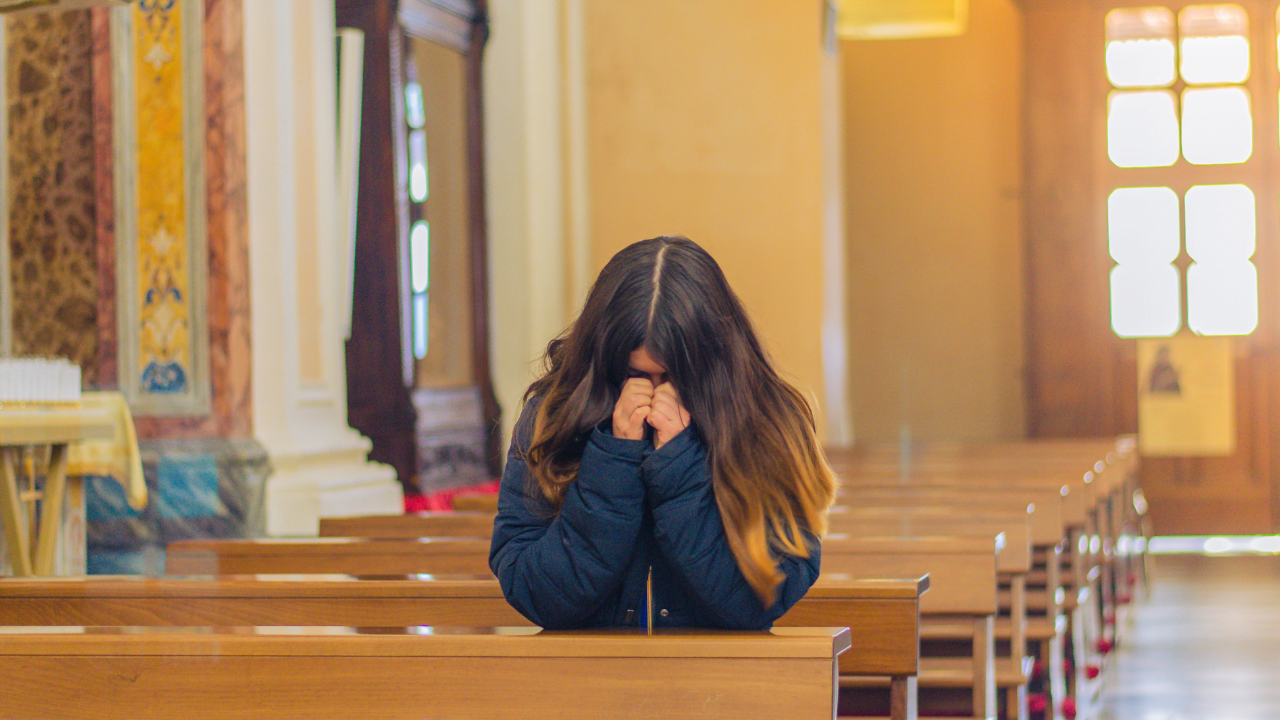No products in the cart.
Discussing the Impact of Religious Teachings on Family Dynamics
This post contains paid and/or affiliate links. I make a small commission at no extra cost to you. Please see our Privacy Policy.
The influence of religious teachings on family dynamics has been the subject of numerous studies. We know that parents’ religious ideology plays a significant role in transmitting religious beliefs and practices to their children. Factors such as the parent’s religious conservative or liberal stance, involvement in religious activities, and the intensity of religious socialization within the family all contribute to the strength of religious transmission.
Research shows that religious teachings have a profound impact on shaping family dynamics. Understanding this influence is essential for families seeking to cultivate a shared religious identity and foster spiritual growth within their households.
Factors Influencing Religious Transmission in Families
Several factors influence the transmission of religious beliefs within families. One significant factor is parental religious ideology. Whether parents identify as religious conservatives or religious liberals can profoundly impact the strength of religious transmission.
In particular, children of religious conservatives tend to exhibit a more robust transmission of religious beliefs compared to other groups. This difference can be attributed to various factors, including the parenting approaches adopted by religious conservatives, their level of involvement in congregational activities, and the intensity of religious socialization within the family.
Parent-child closeness is another factor that plays a role in religious transmission. When parents have a close and nurturing relationship with their children, it creates an environment conducive to transmitting religious beliefs.
Additionally, parenting style and family structure contribute to the variation in religious transmission. How parents raise their children and the dynamics within the family can impact how effectively religious beliefs are transmitted from one generation to the next. For example, authoritarian parenting styles and cohesive family structures have been associated with tremendous success in religious transmission.
In summary, parental religious ideology, parent-child closeness, parenting style, and family structure influence religious transmission in families. Understanding these influences can help us gain insight into the complexity of religious teachings and their impact on family dynamics.
Parental Involvement and its Impact on Children’s Religious Outcomes
Research consistently shows that parent religiosity significantly predicts a child’s religiosity. The level of parent involvement in religious activities has a profound influence on a child’s religious outcomes.
When parents are highly engaged in religious practices and share similar religious beliefs, their influence on their children’s religious lives is strengthened. This suggests parental involvement is crucial in shaping a child’s religious development.
Factors Contributing to Effective Religious Transmission
- Authoritative Parenting Styles: When parents adopt an authoritative parenting style characterized by precise rules, expectations, and guidance, children are more likely to internalize and embrace their parents’ religious beliefs.
- Clear Communication of Religious Beliefs: Open and consistent communication about religious beliefs within the family fosters a more robust understanding and connection to the faith.
- Relational Cohesiveness within the Family: A supportive and cohesive family environment, where members demonstrate warmth, trust, and respect, contributes to effectively transmitting religious beliefs and practices.
Influence of Religious Tradition and Denominational Continuity
The religious tradition of the family and the continuity of religious practices within a specific denomination also impact a child’s religious development. Families who adhere to a particular religious tradition and maintain consistent religious practices within their denomination tend to have children with more substantial religious outcomes.
The significance of parental religiosity and involvement cannot be overstated. Parents are primary sources of religious socialization, shaping their children’s faith and religious identity. Parents can significantly impact their children’s religious outcomes by actively participating in religious activities and adopting practices that foster effective religious transmission.
The Role of Fathers in Shaping Children’s Religious Beliefs
Fathers play a significant role in shaping their children’s religious beliefs. Studies have shown that when fathers actively participate in religious activities and embrace Christianity within the family, their children are more likely to continue attending religious services and engage in spiritual practices as adults.
One area where fathers have a powerful impact is in the attendance of Sunday School. Research reveals that when both parents actively participate in Bible study and Sunday services, most of their children attend Sunday School into adulthood. This underscores fathers’ unique influence in fostering a culture of faith within the family.
The Impact of Father’s Involvement in Religious Activities
- Fathers actively participating in religious activities increase the likelihood of their children’s continued religious practices.
- Embracing Christianity within the family sets an example for children to follow.
- Fathers’ attendance at Sunday services encourages their children to attend Sunday School.
- The joint involvement of both parents in Bible study and religious services strengthens the spiritual foundation of their children.
By actively engaging in religious activities, especially fathers, families can foster a sense of community, promote religious beliefs, and create a solid connection to the faith. Fathers serve as role models, instilling authenticity and credibility in their children’s religious beliefs. As we recognize the profound impact of fathers on their children’s faith, we can cultivate an environment that nurtures spiritual growth, encourages open dialogue, and fosters a shared commitment to the Christian faith.
Conclusion
The influence of parental involvement and religious ideology on family dynamics is undeniable. Parents, especially fathers, play a vital role in shaping their children’s religious beliefs and practices by actively engaging in religious activities. This active involvement fosters community, belonging, and a solid connection to the faith.
Children look to their parents as role models, and when fathers demonstrate a deep commitment to Christianity, it instills authenticity and credibility in their religious beliefs. As families recognize the profound impact of parents on their children’s faith, they can create an environment that nurtures spiritual growth, open dialogue, and a shared commitment to the Christian faith.
Fostering open communication about religious beliefs and practices is crucial in this context. Parents can provide guidance and support, allowing their children to explore their beliefs while instilling their religious heritage’s values and traditions. Families can create a positive and inclusive environment for their children’s religious development by maintaining a balance between religious guidance and individual exploration.
Overall, the parental influence and religious beliefs within the family significantly shape the religious outcomes of children. As parents, particularly fathers, take an active role in religious activities, they can nurture a strong connection to the faith, ensuring that their children continue to embrace their religious beliefs and pass them on to future generations.
FAQ
How does religious teaching impact family dynamics?
Religious teachings have a significant influence on family dynamics. They shape the transmission of religious beliefs and practices from parents to children, impacting the strength of religious transmission and the overall religious development of the family.
What factors influence the transmission of religious beliefs within families?
Several factors contribute to the transmission of religious beliefs within families. These factors include parental religious ideology, parent-child closeness, parenting style, family structure, and the intensity of religious socialization within the family.
How does parental religiosity affect a child’s religious outcomes?
Research consistently shows that parental religiosity strongly predicts a child’s religiosity. The level of parental involvement in religious activities and the clear communication of religious beliefs significantly impact a child’s religious outcomes.
What role do fathers play in shaping their children’s religious beliefs?
Fathers play a significant role in shaping their children’s religious beliefs. Studies indicate that when fathers actively participate in religious activities and embrace Christianity within the family, their children are likely to continue practicing their faith as adults.
How can families foster an environment that nurtures spiritual growth and shared commitment to the Christian faith?
Families can foster such an environment by recognizing the influence of parental involvement, particularly that of fathers, on their children’s faith. Active engagement in religious activities, open dialogue about religious beliefs, and a commitment to Christian traditions can nurture spiritual growth within the family.











